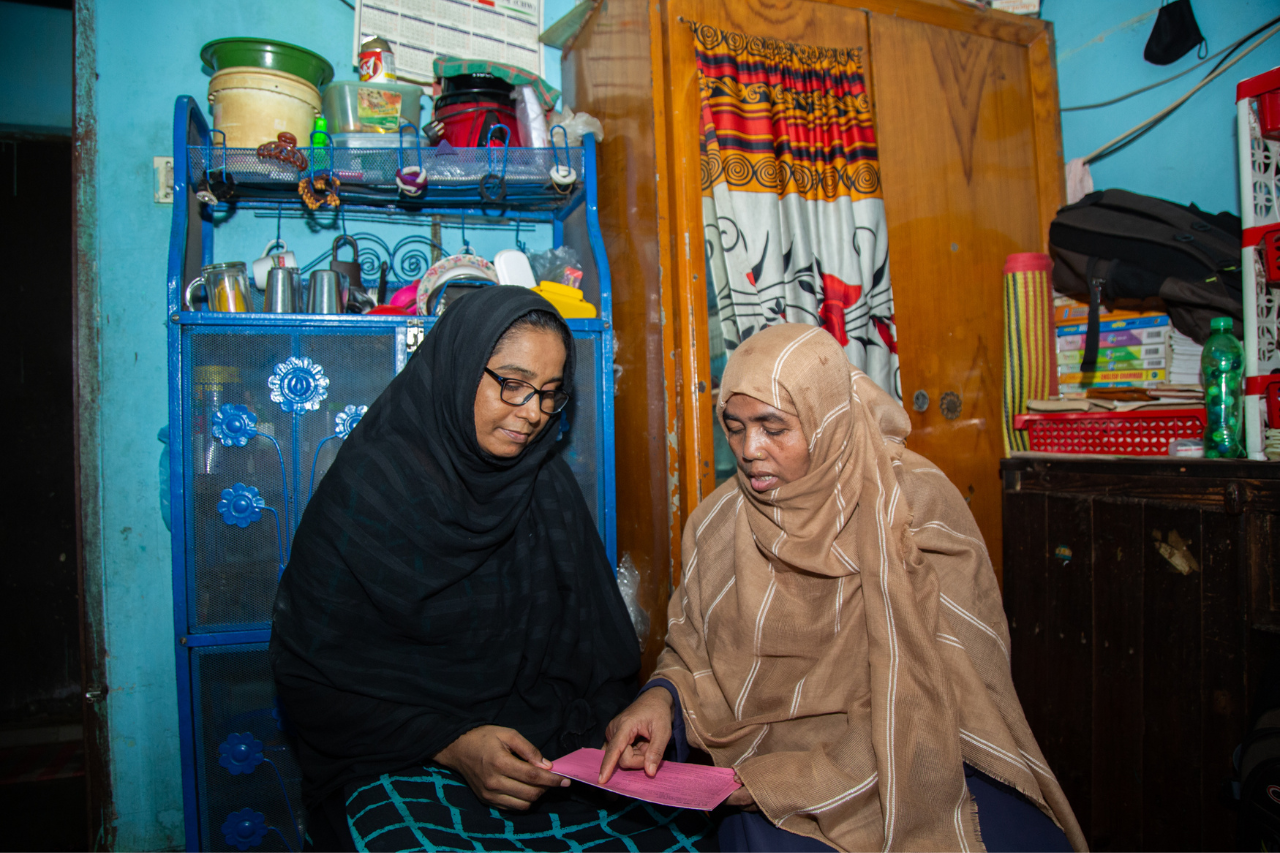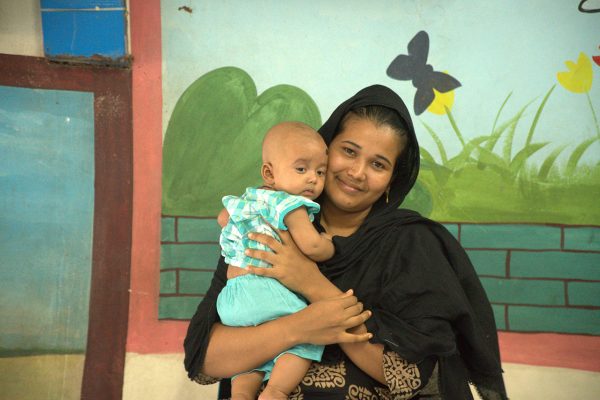Healthcare made hassle-free: Micro health insurance
Reading Time: 3 minutes
One big health scare could wipe out a chunk of a family’s savings. Micro health insurance is a way to safeguard people during medical emergencies.
Kalpana Akhter works at a non-profit organisation in Bangladesh’s capital, Dhaka, and lives in the city’s Kamrangirchar area with her husband Khalek, who is a tailor by profession. When Khalek returned from the market with a fever one day, Kalpana tried to help him recover at home. A week passed by and there was no improvement.
Kalpana took him to a doctor at a nearby clinic, and learnt that he was suffering from lung abscess. The illness made him so weak that he gasped for air in every breath. But Khalek received the right doses of medication, and began to recover.
The majority of Khalek’s medical expenses were covered by a micro health insurance card that Kalpana purchased a few months prior. “When my husband fell ill, we had very little money to spare. The insurance helped me make sure he got the necessary treatment. Sudden medical shocks like these usually mean borrowing money. We’re relieved to have been able to avoid being in debt for the next few years”, Kalpana said.

Kalpana Akhter at her home with BRAC’s community health worker Asma Rahman. Abdullah Al Kafi © BRAC 2022
Out-of-pocket health expenses are the payments people make to health providers from their own cash reserves. In Bangladesh, these account for 74% of total healthcare expenditure. They absorb a large fraction of a family’s disposable income, often decreasing savings and increasing the risk of being trapped in long-term debt.
Families with lower incomes are hit harder by out-of-pocket expenses, spending up to 35% of their household income on healthcare. Globally, healthcare costs cause approximately 100 million people to become stuck in poverty every year.
Micro health insurance packages have low premium rates, so people who are otherwise unable to secure traditional health insurance can access high quality healthcare without having to pay exorbitant fees. The approach can decrease out-of-pocket expenses and give financial protection from unexpected health care expenditures.

BRAC’s community health worker explains the benefits of insurance to Shahanaz Akther. Abdullah Al Kafi © BRAC 2022
Introduced in 2018, with the support of the European Commission, BRAC’s micro health insurance project started as a pilot to address the financial barriers people face when seeking healthcare, by providing comprehensive and easily accessible healthcare for low to middle-income urban population.
The project was scaled up in 2021, through partnerships with local private hospitals, 20 of BRAC’s maternity centres and Pragati Life Insurance Limited to reach a larger population in the urban areas. Approximately 90% of clients who take out micro health insurance packages are women.
Clients can currently avail two types of insurance: one with a yearly premium of BDT 1,220 (USD 13) and one of BDT 650 (USD 7). Even under the lowest premium, a policyholder is covered for outpatient treatment of up to BDT 1,500 (USD 16); hospital facility stay of up to BDT 10,000 (USD 105); normal childbirth of up to BDT 2,200 (USD 23) and caesarean delivery of up to BDT 6,500 (USD 68). In addition, the premium also covers life insurance of BDT 10,000 (USD 105).
To put this into perspective, a normal childbirth sets one back by BDT 2,500 (USD 26) at BRAC’s maternity centres, along with an admission fee of BDT 100 (USD 1). In addition, check-ups performed by a midwife costs BDT 100 and those performed by a medical officer is BDT 200 (USD 2).
How does affordable health insurance reach the doorsteps of people who need it the most?
The insurance cards are sold by BRAC’s shasthya kormi – community health workers – who go door to door to ensure basic healthcare in their own communities. During the home visits, the health worker informs families about the insurance policies available to them, and receives a modest incentive for each card she sells.
“I was able to get my ultrasound done twice and delivered a healthy baby girl, completely free of cost. Going into motherhood without worrying about money has helped me take care of myself better, and so both me and my daughter are doing well”, said Mukta Akhter (35), one of the clients of this project.
Like Kalpana and Mukta, over 900 individuals currently own a micro health insurance card across urban areas of Bangladesh, in 12 city corporations. Work is being done to expand the coverage to rural areas of 61 districts. The overall goal is to ensure that people have access to affordable healthcare facilities and are protected from unexpected medical expenses.
The concept of health insurance is still new in many communities in Bangladesh. Misconceptions include insurance being costly and the claim settlement process being complicated. Some people believe that a healthy person does not require any kind of health insurance. Many believe that smokers are not allowed to buy health insurance cards, leading to hesitation for many people from seeking health insurance, particularly men.
A majority of the clients of BRAC’s micro health insurance are women who primarily intended to utilise the cards for maternal care services during and after pregnancy. As seen in the case of Khalek, however, micro health insurance policies can prove beneficial for everyone to conveniently access healthcare at times when they need it the most.
BRAC Health Nutrition and Population Programme caters to the healthcare needs of over 80 million people across Bangladesh, through a combination of community-based and facility-based services. Its community-driven healthcare approach employs 50,000 community health workers and volunteers who deliver quality affordable care to populations living in the most deprived and vulnerable conditions. BRAC’s community health workers are all women, who deliver door-to-door primary and essential healthcare, and facilitate linkages with formal providers.
Monzur Morshed Patwary is a Senior Programme Manager at BRAC at BRAC Health Nutrition and Population Programme.
Joy Bhowmik is a Senior Officer, Field Operations at BRAC at BRAC Health Nutrition and Population Programme.





